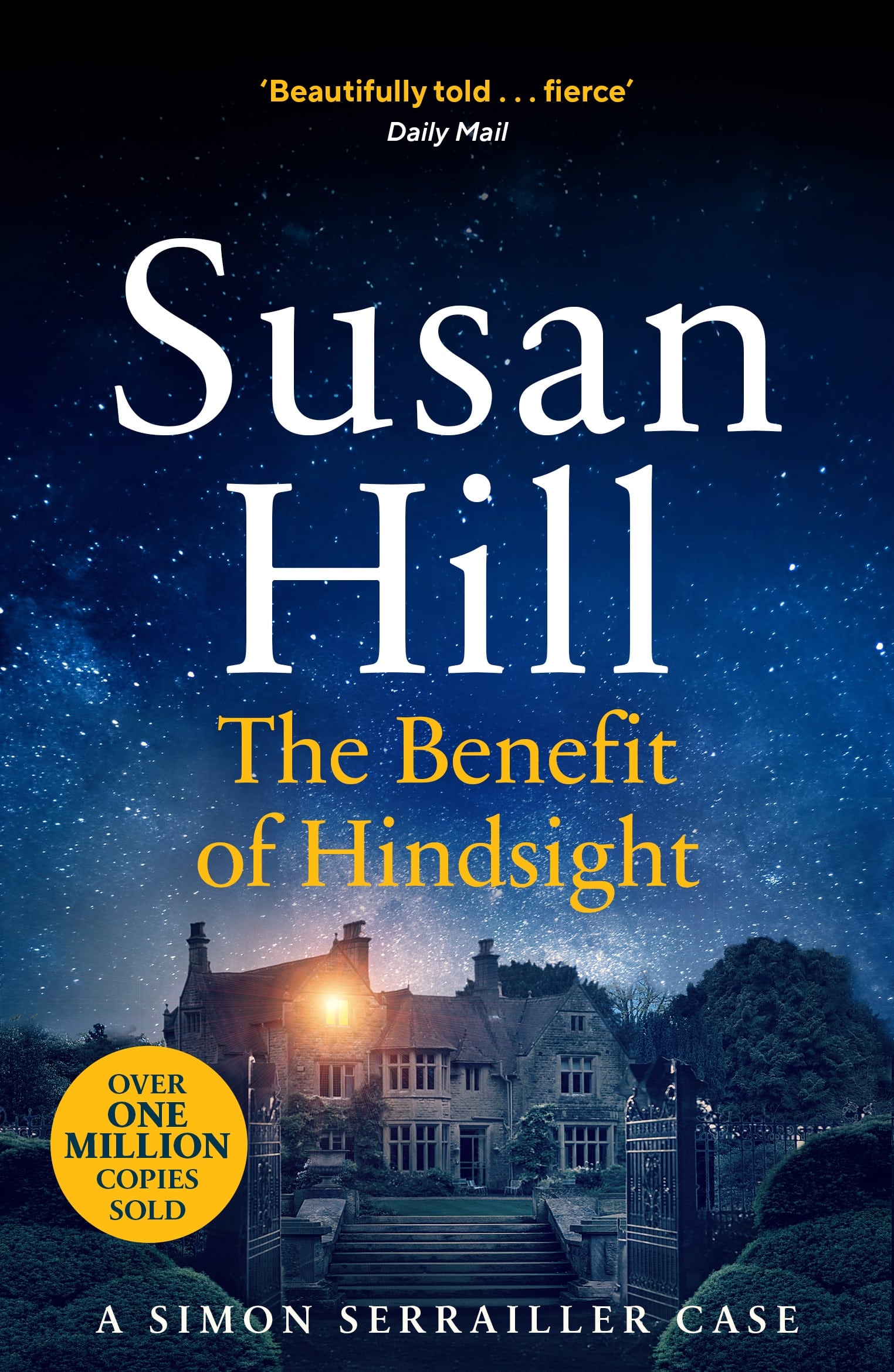Books
Extract: The Benefit of Hindsight by Susan Hill
The Benefit of Hindsight is the brand new crime novel by Susan Hill, bestselling author of the Simon Serrailler series.
On the face of it, DC Simon Serrailler has had time to recuperate after the violent incident that cost him his arm, and nearly his life. He is back in harness at Lafferton CID, but is spending his spare time high up in the cathedral roof, making drawings of the medieval angels which are being restored.
Lafferton is going through a quiet patch, so far as crime is concerned, until one rainy night two local men open their front door to a couple seeking shelter. A serious error of judgement in the investigation puts Simon’s reputation on the line and calls into question how full his recovery has really been.
In this, the tenth Simon Serrailler crime novel, Simon must battle his own demons as Lafferton struggles to cope with a series of crimes that threaten the very sanctity of hearth and home.
Read on for an extract from The Benefit of Hindsight!
The Benefit of Hindsight
by
Susan Hill
Carrie wanted to stay out longer. She had nothing else to do but she did not want to go home. She had come out of the newsagent’s in a churn of anxiety about what she had found out, what was happening, and until she had processed it in her head, she could not walk into the house and face Colin.
There were cafes on either side, new and smart, old and comfortable, but all full. Someone bumped into her, someone else almost tripped her up. A man sat in a doorway on a piece of old matting, with a dog and a mug of coppers, and spat on the pavement. Her hair was damp from the drizzle, as were the sleeves of her coat and the handles of her tote bag.
She felt a surge of panic, and the need to move, to get away, though it was herself she really wanted to get away from. She went down the side street towards the cathedral, past the great west door and into the new visitors’ centre which had opened just before Christmas, to equal choruses of delight and disapproval. It was cool and beautiful there, a calm place, like the ancient cathedral itself, and there were only a few people in the refectory. Carrie got her pot of tea and a cheese scone, and went to the far end of the cafe, beside a glass wall through which she could see the tiled space beyond. She closed her eyes. She did not come to the cathedral to pray, she had no particular belief, though sometimes she spoke aloud to someone, someone who might be listening, and if there was no one and she was only talking to herself, it still helped.
Perhaps she would not have to tell him, she thought, spreading butter on her scone, perhaps he would work it out for himself. No. Colin was incapable of working anything out except the figures he saw on his computer screen from early morning until late at night, the white electronic arrows moving up and down.
A woman came into the refectory, took a tray, gave her order, the sort of woman who usually came in here, a volunteer who manned the shop, or sat behind the new glass counter giving out information and leaflets, or arranged the flowers. No, not flowers, Carrie remembered that the flower arrangers came in as a group, three or four of them, clattering their trays and talking cheerily. A lot of the people who helped out in the cathedral and this visitors’ centre were cheery.
She pushed some crumbs around her plate with her forefinger, and pressed them together to form a ball.
Then the swing doors opened again and there was bumping and shuffling and voices. Two young women with pushchairs. They came down the aisle towards her, and settled down at a table with a lot of fuss and chat and coat removing and chair scraping. The refectory was noisy because all the surfaces were hard. No one had thought of that. Every cup and saucer clattered, cutlery clashed, the sudden noise of the coffee machine muffled speech.
She came here for peace and quiet, a place where she could be safely herself, and sooner or later people and their racket always drove her away.
One woman had gone to the counter, the other sat with the children. A baby was on her lap, its arms jerking up and down like the arms of a string puppet, not yet within its control. Carrie did not want to look at it. She looked at it.
And then she saw the other child. It had not been taken out of its pushchair and it was turned slightly to face Carrie. She did not know how old it might be, only that it was not a baby. Children like that could be any age.
Children like that. It was still but not asleep. Its lolling head was too large and it wore a bib into which it was dribbling. Its eyes did not focus. Its face was the colour of dough.
The woman was bringing over the tray of drinks and as she set it down on their table she looked at the child and her face broke into a smile and seemed to blaze up at the sight, as if she had been bathed in sunshine. The look was joyous, a look of delight. But most of all, a look of love, unconcealed, all-absorbing.
The child saw nothing, only moved its head a little, as it dribbled and its eyes rolled up and round and up again.
Carrie left, almost knocking over her chair, startling the baby on the lap. But the child in the buggy was not startled. It seemed to be unaware of every sound, every movement around it, every person.
Outside she leaned on a pillar and felt her heart race and lurch and her mind spin and nausea rise up in her, like a creature springing out of water deep down, and she retched, but nothing came out of her mouth except an ugly sound, so that a man walking past flinched slightly, before quickening his step. She took in gulps of air which tasted of rain.
Somehow she had to find her car and drive home and, eventually, talk to Colin, tell Colin, make Colin angry or shocked or miserable. Frightened, perhaps, as she was. Her fear was deep-rooted and powerful. It was absolute, certain, real, the fear of her worst nightmares and waking terror. A fear that was growing inside her.
Enjoyed this extract from The Benefit of Hindsight? Take a look at all of Susan Hill’s Simon Serrailler books in order here.


Please note: Moderation is enabled and may delay your comment being posted. There is no need to resubmit your comment. By posting a comment you are agreeing to the website Terms of Use.